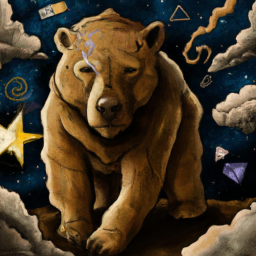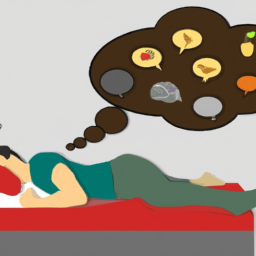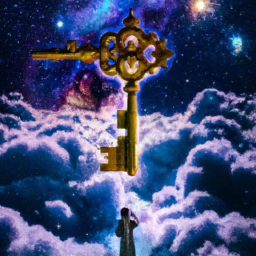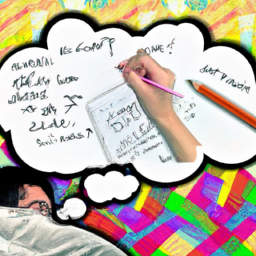Ah, interesting. Last night, I had a dream featuring bears. Quite intriguing! Given my fascination with the enigmas of the human mind, I found myself pondering over the potential significance of this dream.
After all, bears are powerful creatures that have been revered and feared by humans for centuries. So, what do dreams about bears really signify?
As it turns out, dreaming about bears can have a multitude of interpretations depending on the context and symbolism surrounding them. From ancient folklore to modern psychology, there are many perspectives to consider when trying to decipher the meaning behind these bear dreams.
In this article, we’ll explore some common types of bear dreams, delve into their cultural and historical significance, and provide techniques for understanding what your own bear dream might be trying to tell you.
So sit back and prepare to learn more about the fascinating world of bear dreams!
Key Takeaways
- Bears have been prominent figures in mythology and culture, representing strength, protection, and spiritual energy in various cultures.
- Encountering a bear in the wild can be dangerous, and it’s important to know how to handle the situation to increase chances of survival.
- Bear dreams can symbolize inner strength, power, protection, or a need for emotional support, and should be analyzed in the context of the dream and personal experiences.
- Emotional and mental health are crucial for overall well-being, and techniques such as therapy, mindfulness practices, and social support networks can help improve emotional well-being.
Overview of the Symbolism of Bears in Different Cultures
So, you’re probably wondering what bears symbolize in different cultures. Well, let me tell ya!
Bears have been a prominent figure in mythology throughout history. In Greek mythology, the goddess Artemis was often depicted with a bear by her side, symbolizing strength and protection. The Norse god Odin was also associated with bears as they represented his warrior spirit. Similarly, in Native American cultures, the bear is seen as a powerful and wise animal that possesses great spiritual energy.
In indigenous cultures around the world, bear sightings hold significant meaning. The Koyukon people of Alaska believe that when they see a bear in their dreams or waking life, it is a message from their ancestors to be strong and courageous. In some First Nations communities in Canada, the bear is considered sacred and is believed to possess healing powers. Its strength and resilience are seen as qualities that can inspire individuals to overcome adversity.
Understanding the symbolism of bears across various cultures can help us interpret our dreams about them more accurately. Common types of bear dreams include being chased by one or encountering one while hiking or camping. These dreams may signify feelings of fear or vulnerability that we need to confront head-on in our waking lives.
By exploring our subconscious mind through dream analysis, we can gain valuable insight into ourselves and improve our overall well-being without even realizing it!
Common Types of Bear Dreams
I’ve had several bear dreams in my life, and each one has left me feeling shaken. From being chased by a bear to seeing one in the wild, these dreams can be incredibly vivid and intense. The possibility of being attacked by a bear is also a common theme that can leave us feeling vulnerable and scared.
However, some people may dream of interacting with a bear, which can offer a unique perspective on the symbolism surrounding this powerful animal.
Being Chased by a Bear
Running from a bear in a dream can be terrifying, but it often symbolizes avoiding a problem or fear in waking life. When I dreamt of being chased by a bear, my heart raced and my legs felt like jelly. It was as if the beast’s primal instincts had taken over me too.
Here are some bullet points that describe how I felt during that dream:
- Fear: The mere sight of the bear instilled an intense feeling of dread within me.
- Helplessness: No matter how fast I ran, the bear seemed to keep up with me effortlessly.
- Vulnerability: I was acutely aware that at any moment, the bear could catch up to me and attack.
- Relief: When I woke up from the dream, there was an immense sense of relief that it was all over.
Analyzing behavior and understanding instincts can be helpful when interpreting dreams about bears. In this case, running away from a bear may represent avoiding something scary or dangerous in real life. However, seeing a bear in the wild is another experience altogether.
Seeing a Bear in the Wild
Encountering a bear in the wilderness is like stumbling upon a force of nature, a magnificent yet dangerous creature. The first time I saw a bear while hiking, my heart raced with equal parts fear and awe. It was an incredible experience to witness such an impressive animal in its natural habitat.
But encountering a bear can also be incredibly dangerous if you don’t know how to handle the situation. It’s important to make noise as you hike so that you don’t startle any bears nearby. If you do see one, try to remain calm and avoid eye contact. Slowly back away from the bear while keeping your eyes on it at all times.
Remember, a mother bear might attack if she feels her cubs are threatened, so be extra cautious around young bears.
With these tips for handling bear encounters in mind, it’s important to remember that sometimes even the best precautions aren’t enough to prevent an attack.
In the next section, we’ll explore what to do if you find yourself being attacked by a bear.
Being Attacked by a Bear
If caught off guard, it’s crucial to know how to respond when attacked by a bear in order to increase your chances of survival. When exploring survival instincts, it’s important to remember that bears usually attack when they feel threatened or provoked. Therefore, the key is to remain as calm and non-threatening as possible.
One helpful method for coping with fear and anxiety during a bear attack is to use the acronym "STOP."This stands for: Stop moving; Talk calmly and firmly; Observe the bear’s behavior; and Prepare yourself for defense or escape. It’s also important to remember that playing dead may be an effective strategy if you are being attacked by a grizzly bear, but not necessarily if you are facing a black bear. By remaining alert and prepared, you can increase your chances of surviving a bear attack while still respecting these magnificent creatures.
As we transition into the subsequent section about interacting with a bear, it’s important to understand that prevention is always better than reaction. By learning more about bears’ habits and behaviors before encountering them in the wild, we can reduce our likelihood of conflicts altogether.
Interacting with a Bear
As we delve into how to interact with bears, let’s remember that respecting their natural habitats and behaviors is essential for both our safety and theirs. By doing so, we can coexist peacefully with these magnificent creatures.
When encountering a bear in the wild, it’s important to keep a safe distance and avoid disturbing their activities such as feeding or caring for their young. If you do come across a bear, make yourself known by speaking calmly and firmly while slowly backing away.
Survival skills are also crucial when interacting with bears. It’s important to carry bear spray and know how to use it effectively in case of an attack. Additionally, learning about conservation efforts and supporting them can help ensure the survival of these amazing animals for future generations to enjoy.
By respecting bears and being prepared, we can safely interact with them in their natural habitat without fear or harm.
Understanding the context of your dream is important when trying to interpret its meaning. Dreams can be influenced by our daily experiences and emotions, so identifying any underlying issues may provide insight into why bears appeared in your dream.
Understanding the Context of Your Dream
When trying to interpret your dream about bears, it’s important to first understand the context and setting in which the dream takes place. Analyzing symbols is a crucial part of understanding dreams, and bears are no exception.
Dream journaling can help you identify recurring themes in your dreams and provide insight into their meanings. For example, if you dream about a bear while camping in the woods, it may represent feelings of vulnerability or danger in your waking life.
On the other hand, if you dream about a bear in a zoo or circus setting, it could symbolize captivity or control. The location and actions of the bear in your dream can give clues as to what emotions or situations may be affecting you.
By keeping track of your dreams and analyzing them for patterns and symbols, you can gain deeper insight into your subconscious thoughts and feelings. In the subsequent section on symbolism of bears in dreams, we’ll explore further what these powerful animals may represent when they appear in our sleeping minds.
Symbolism of Bears in Dreams
As I delved deeper into understanding the context of my dream about bears, I realized it’s important to examine the symbolism behind these animals.
Bears are often associated with strength and power, which could be a reflection of my own inner potential or a warning to be cautious of someone who wields too much influence over me.
Additionally, bears can represent protection and nurturing, indicating that I may need to rely on my own inner resources or seek support from those around me.
Finally, dreams about bears can also evoke feelings of fear and danger, especially if the bear is aggressive or threatening in some way. Alternatively, they could symbolize hibernation and rest, reminding me to take time for self-care and renewal.
Strength and Power
The sheer size and ferocity of a bear in a dream can evoke feelings of awe and respect for their strength and power. When I dream about bears, I often feel overwhelmed by their immense presence and the force they exude.
In exploring the symbolism of bears in dreams, it’s clear that their spiritual significance lies in their representation of raw power and primal instincts. In my experience, dreaming about bears can be a reminder of my own inner strength and power. It may be an invitation to tap into my primal instincts when facing challenges or difficult situations.
Additionally, the bear’s strength can also represent protection from harm or danger. As I transition into exploring the next subtopic about protection and nurturing, I’m reminded that this aspect of bears in dreams is closely tied to their strength – for it’s through being powerful that one can protect those they love most.
Protection and Nurturing
With their gentle embrace and nurturing nature, mother bears exemplify the epitome of protection and care for their cubs. As an animal spirit guide, the bear represents a source of strength and resilience, but also symbolizes the importance of cultivating motherly instincts to protect those we love.
Here are some insights into what dreaming about bears may mean in terms of protection and nurturing:
- You may be seeking emotional support or guidance from someone who embodies maternal qualities.
- Your subconscious mind is reminding you to take care of yourself or others who may need your help.
- The bear can also signify a need for boundaries or assertiveness when it comes to protecting your personal space or resources.
- In some cases, dreaming about a bear could represent feelings of vulnerability or fear that require the comfort and safety of a maternal figure.
As we explore further into this topic, we’ll delve into how dreams about bears can reveal our deepest fears and anxieties.
Fear and Danger
When you encounter a bear in your dream, it can evoke intense feelings of fear and danger. This is because bears are often associated with aggression and unpredictability, which can trigger our physiological responses such as increased heart rate, sweating, and adrenaline rush. These responses are natural and help us to be prepared for any potential danger that may occur.
However, the fear we experience in our dreams may not always be related to actual physical threats. It could also represent different types of fears such as the fear of failure or rejection. For example, dreaming about being chased by a bear could symbolize running away from something that scares us or feeling overwhelmed by a problem we are facing. Exploring these different types of fears and their meanings can help us gain insight into our subconscious thoughts and emotions.
As we explore the meaning behind our dreams about bears, it’s important to remember that they aren’t always negative or threatening. In fact, some bear dreams may indicate a need for hibernation and rest – which we’ll explore further in the subsequent section.
Hibernation and Rest
As we delve deeper into our dreams, it’s important to take note of the symbolism behind bears and how they can represent our need for hibernation and rest.
Did you know that bears are experts in conserving energy? They hibernate for months without food or water, relying solely on their fat reserves. This is a vital part of their biology that has been studied extensively by scientists. By exploring hibernation patterns and biological adaptations of bears, we can gain insight into our own need for rest.
Meditation and relaxation techniques are effective ways to promote restful sleep and reduce stress levels. Just like bears, we too need to conserve energy in order to function at our best. By incorporating mindfulness practices into our daily routine, we can create an environment that fosters deep relaxation and rejuvenation.
So next time you dream about a bear, consider it as a reminder to slow down and take some time for yourself before moving on to interpreting your dream further.
Interpreting Your Bear Dream
One way to make sense of your bear dream is by exploring the symbolism behind these furry creatures. Analyzing emotions and understanding what they represent can give you insight into what’s happening in your subconscious mind.
Here are three sub-lists that may help you interpret your bear dream:
-
The bear can represent strength and power, especially if it’s a grizzly or polar bear. Ask yourself if you feel empowered in your waking life, or if there’s someone who holds power over you that you need to confront.
-
Alternatively, the bear can symbolize fear or danger. If the animal is chasing you or attacking you in your dream, it may be a sign that there’s something in your life that’s causing anxiety or stress.
-
Finally, bears are often associated with motherhood and nurturing. If the bear in your dream is caring for cubs, it could indicate a desire to start a family or nurture others around you.
Understanding the symbolism of bears in dreams is just one step towards interpreting their meaning. Once you have an idea of what they might represent, look at how they relate to other elements of the dream such as setting and people involved.
By analyzing not only what the bear represents but also the context of its appearance in your dream, you’ll be better able to understand how it relates to your waking life without even realizing it.
How Bear Dreams May Relate to Your Waking Life
When I reflect on my recent dream about bears, I can’t help but wonder if it has any connection to my waking life.
As I consider the symbolism of the bear and its possible meanings within my personal relationships, career and goals, and emotional and mental health, I realize that there may be deeper insights to uncover.
By exploring these connections between my dream world and reality, I hope to gain a greater understanding of myself and navigate through life with more purpose.
Personal Relationships
You might be surprised to find out that dreaming about bears can actually reveal a lot about your personal relationships. As someone who’s always been fascinated by dream interpretation, I’ve found that bear dreams often signify the need for me to navigate boundaries in my relationships.
This could mean setting healthy boundaries with toxic people or recognizing when others are crossing my own boundaries. Another way that bear dreams may relate to personal relationships is through communication skills. In these dreams, the bear may represent someone in our lives who we feel threatened by or intimidated by.
However, if we’re able to confront and communicate effectively with this person in the dream, it can translate into improved communication skills in real life. Overall, interpreting bear dreams can provide valuable insights into how we navigate our personal relationships and improve our communication skills.
Moving forward, understanding how these dreams relate to career goals can also provide important insights into our subconscious desires and motivations.
Career and Goals
In terms of my career and goals, dreaming about bears can have significant implications. As someone who is ambitious and always striving to improve myself professionally, I often find myself struggling with setting boundaries. I tend to take on too much work or put undue pressure on myself to achieve certain goals, which can lead to burnout and ultimately hinder my progress.
However, when dreaming about bears, it may be a sign that I need to take a step back and reassess the situation. Bears are known for their strength and power, but they also symbolize the importance of finding one’s passion in life. By setting clear boundaries and focusing on what truly drives me, I can tap into that same sense of strength and determination in my own career journey.
| Column 1 | Column 2 | Column 3 | Column 4 | Column 5 |
|---|---|---|---|---|
| Strengths | Weaknesses | Opportunities | Threats | Passions |
| – Excellent communication skills | – Struggles with time management | – Networking events | – Competitive job market | – Writing |
| – Strong analytical abilities | – Tendency to take on too much work | – Advancement opportunities | – Economic downturn | – Social activism |
By understanding my strengths, weaknesses, passions, opportunities, and threats in this way through the chart above, I can better navigate my career path while staying true to myself. Dreaming about bears serves as a reminder for me to set boundaries and focus on what truly drives me in order to achieve success both personally and professionally.
With that said, it’s important not just for our careers but also for our overall health to pay attention to our emotional and mental well-being.
Emotional and Mental Health
Taking care of your emotional and mental health is crucial, as studies show that approximately 1 in 5 adults in the US experience mental illness each year.
Stress is a major contributing factor to mental health issues, and it can come from many sources such as work, relationships, or financial problems. When stress becomes chronic, it can lead to anxiety and depression which can be debilitating.
In addition to external stressors, past traumas can have a profound impact on our emotional well-being. Many people struggle with unresolved trauma, leading to difficulties with regulating emotions or feeling safe in their relationships.
Understanding the connection between past trauma and current emotional struggles is essential for healing. Some techniques that may help include therapy sessions where one can talk about their experiences with someone who understands what they’re going through; mindfulness practices like yoga or meditation which can help reduce stress levels by teaching one how to focus on the present moment rather than worrying about the future; exercise, which releases endorphins that help elevate mood; journaling as an outlet for processing thoughts and feelings; and social support networks that provide empathy and understanding.
As we explore the impact of stress on emotional and mental health and strive towards healing past traumas, it’s important to also consider recurring dreams we may have – such as ones involving bears – that could be indicative of deeper issues at play.
Techniques for Recurring Bear Dreams
If you’re struggling with recurring bear dreams, try implementing some relaxation techniques before going to bed. You can start by practicing deep breathing exercises or meditation to calm your mind and reduce anxiety. This will help you enter a more relaxed state, making it less likely for your subconscious to conjure up intense dream scenarios.
Another technique is to keep a dream journal where you record the details of each bear dream in as much detail as possible. Write down how the dream made you feel and any emotions that arose during the experience. This will help you interpret the meaning behind these dreams and identify any patterns or themes that may be arising.
Understanding the symbolism of bears in dreams can also provide insight into why they are appearing so frequently. Bears often represent strength, power, and protection but can also symbolize fear and aggression. By exploring this symbolism further, you may uncover underlying fears or anxieties that need to be addressed in order to decrease the frequency of these dreams.
As we explore other animal symbols in dreams, it’s important to remember that each person’s experience is unique, and interpretations can vary based on personal associations with different animals.
Other Animal Symbols in Dreams
To better understand the symbolism of different animals in your dreams, try tapping into your thoughts and feelings to identify which creatures are commonly appearing during your subconscious wanderings. Animal symbolism has been present in mythology for centuries, with each creature representing various meanings and interpretations. In dream interpretation techniques, animals often represent our primal instincts or emotions.
In the table below, I have listed some common animal symbols found in dreams and their potential interpretations:
| Animal | Interpretation |
|---|---|
| Snake | Transformation, fear, temptation |
| Wolf | Loyalty, pack mentality, aggression |
| Eagle | Freedom, power, spiritual growth |
| Deer | Gentleness, gracefulness, vulnerability |
These are just a few examples of how animal symbols can be interpreted in dreams. It is important to note that the meaning behind an animal symbol can vary based on personal experiences and cultural beliefs.
Understanding these symbols can provide insight into our own subconscious thoughts and emotions. However, it is important to not become too fixated on one specific interpretation as there may be multiple meanings behind a single symbol.
As we explore the cultural and historical significance of bears in dreams later on in this article, keep in mind how these animal symbols play a role in our understanding of ourselves and our surroundings.
Cultural and Historical Significance of Bears
The significance of bears in various cultures throughout history has been both revered and feared, with their symbolism representing strength, power, and even motherhood. Bear worship is a practice that has been documented among several indigenous groups across the globe.
The Ainu people of Japan believe that bears are messengers from the gods and have been known to perform elaborate ceremonies to honor them.
In North America, Native American tribes hold a deep respect for bears and often incorporate bear imagery into their art and storytelling. The bear was considered a powerful spirit animal, imbued with great strength and wisdom.
Similarly, in Norse mythology, the god Odin had two pet wolves named Geri and Freki who were said to be his constant companions. However, it was believed that if Odin ever fell in battle, he would be accompanied to Valhalla by a pack of loyal bears.
Bear mythology also plays an important role in many modern cultures. In popular media such as movies and literature, bears are often portrayed as fierce protectors or wise mentors. From Goldilocks’ encounter with the three bears to Baloo’s mentoring of Mowgli in The Jungle Book, these stories continue to captivate audiences of all ages.
Through the ages, humans have looked up to these majestic creatures for inspiration – whether it’s for their physical prowess or maternal instincts – making them one of the most iconic symbols across different cultures around the world.
Frequently Asked Questions
What is the scientific explanation for why we dream about bears?
Dreaming about bears can be an allegory for facing one’s fears. As we cycle through REM sleep patterns, our subconscious uses psychological symbolism to process emotions and experiences. The scientific explanation lies in the intricate workings of the brain.
Can certain medications or substances affect our likelihood of having bear dreams?
Medication effects on dream symbolism are complex and vary depending on the substance. Certain medications, such as antidepressants, can increase vivid dreaming and alter content. Consult with a healthcare provider for personalized information.
Are there any specific actions or behaviors we should take in our waking life to prevent bear dreams?
To prevent bear dreams, I recommend practicing mindful techniques to reduce stress and improve sleep hygiene. This includes regular exercise, avoiding caffeine and electronics before bed, creating a peaceful sleep environment, and setting positive intentions before sleeping.
Do people of certain ages or genders tend to have more bear dreams than others?
From my personal experience, I have not noticed a significant difference in the frequency of bear dreams based on age or gender. However, cultural influences may play a role in the symbolism and interpretation of these dreams.
Can dreams about bears predict future events or outcomes?
Dream interpretation and symbolism analysis suggest that dreams about bears can offer insight into future events or outcomes. As someone who values serving others, understanding the hidden meanings behind these dreams may provide guidance and foresight in decision-making.
Conclusion
Overall, dreams about bears can hold significant meaning and symbolism, depending on the context and cultural associations. Whether you dream of a friendly bear or an aggressive one, understanding the underlying message can help you gain insight into your subconscious mind.
By exploring different interpretations and considering how it relates to your waking life, you may uncover important insights into your fears, desires, or challenges. So next time you have a bear dream, take a moment to reflect on what it might mean for you personally.
Is there something in your life that feels overwhelming or intimidating? Are there aspects of yourself or your relationships that need attention? By delving deeper into the symbolism of bears and other animals in dreams, you may find new ways to navigate the complexities of daily life.
What other animal symbols have appeared in your dreams lately?










